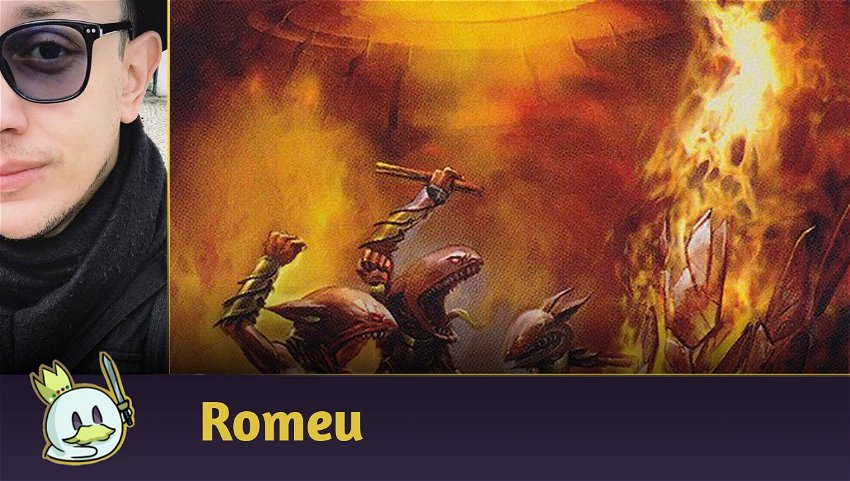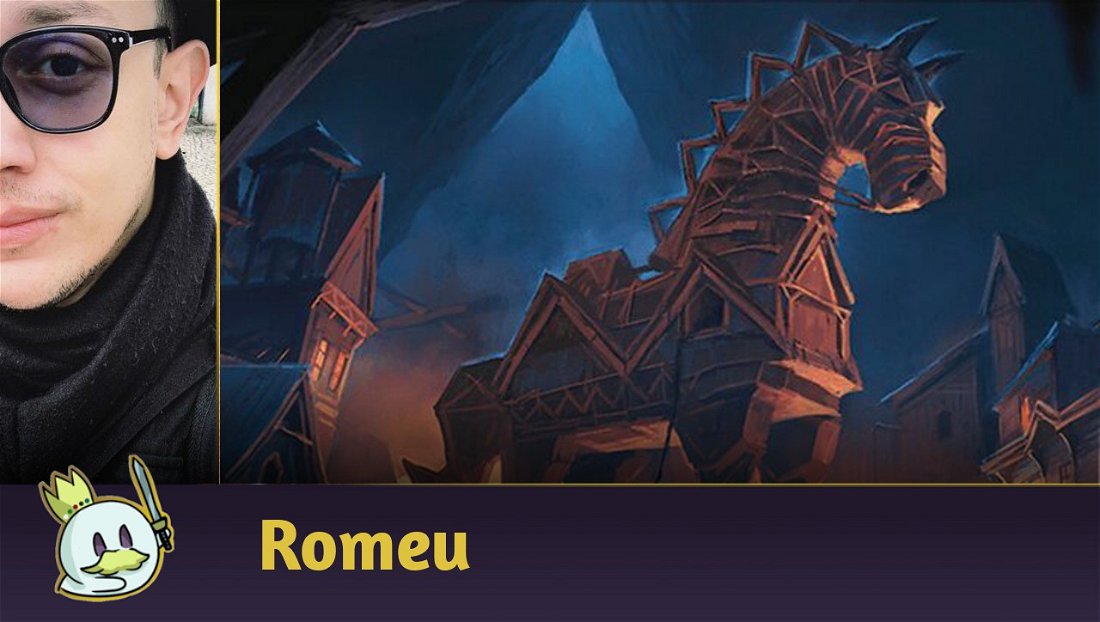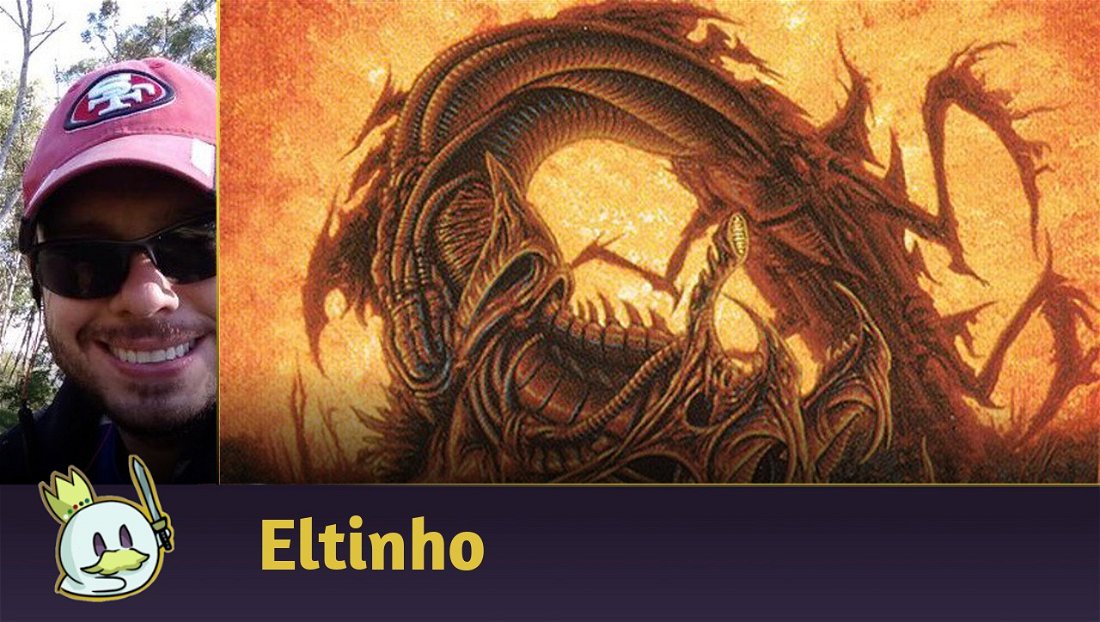A few months after the most recent intervention in the format, Pauper still has a Metagame dictated by speed. Your list needs to be ready to deal with quick threats in the first turns, or hold the match long enough to establish your game plan - two proposals that, in the current scenario, have become increasingly difficult.
Today, two archetypes are the main factors to define the speed of the Metagame: Azorius Affinity, with its combination of card advantage, synergy and a combo-kill with All That Glitters and Kuldotha Red, whose synergy with artifacts and “go wide” proposal make it possible to maintain your gas for many turns.
With no changes to the banned and restricted announcement on March 11th, we can conclude that Pauper will maintain its competitive structure based on these two decks for a few more months, and in this article, I present a guide to the current most famous strategy in the format - Kuldotha Red.
What is Kuldotha Red?

Kuldotha Red is an aggressive deck with a “go wide” proposal through the synergy between Kuldotha Rebirth with artifacts who offer benefits when they leave the battlefield, such as Experimental Synthesizer and Implement of Combustion.
It began to gain popularity when Experimental Synthesizer was launched in Kamigawa: Neon Dynasty, establishing itself as the best aggressive strategy in the format withMonastery Swiftspear and its downshift in Ultimate Masters, now banned for making the format too fast.

In the absence of Swiftspear, Kuldotha Red adopted a core composed of low-cost, high-power Goblins combined with Goblin Bushwhacker, enabling some attacks for ten or more damage as early as the third turn, similar to how Boros Convoke does on Pioneer, and Pauper is not a well-prepared format to handle such speed without heavy compromises.

Its efficient set of direct damage and board control combines with the effectiveness of its threats to amplify its clock, creating one of Pauper's most powerful and most popular archetypes in 2024.
Why play Kuldotha Red?
The main reason to play Kuldotha Red is the way its games are fast, but without making too many concessions if the game goes on for too long. This is an aggro deck capable of maintaining pressure for eight or more turn cycles without running out of steam, almost double that of traditional Burn.
Furthermore, given its speed and straightforward strategy, this archetype is an excellent choice for players who don't know much about the format and also for those who want to play quick Leagues with a good win rate, making its Metagame share very high even when compared to Affinity.
The Decklist
This is the decklist that I have been running in the Pauper Leagues since the popularization of Azorius Affinity as the main variant of the archetype.
It is very objective and does not require many explanations for its slots, while it also has some flexible cards depending on which Metagame a player expects.
End the Festivities, for example, is excellent when we expect to face the mirror frequently, but it gets much worse when we have more Affinity in the format. We can reduce the Reckless Impulse number or even remove it if we need to bet on more speed, and Seal of Fire can be very useful in matchups where Goblin Blast-Runner is a good threat.
Evaluate your Metagame and consider which cards are really needed. Kuldotha Red has an average of five flex slots, and what we add to them can be the difference between a good or bad League.
Maindeck

Goblin Tomb Raider and Goblin Blast-Runner interact with this deck's proposal as two-toughness threats, allowing them to survive in trades against smaller creatures and not be easy targets for End the Festivities or Electrickery.
Voldaren Epicure is the main enabler we have in creature form, while also leaving a body in play and pinging the opponent. Its token can be used to trigger Goblin Blast-Runner, enable Goblin Tomb Raider, and grant metalcraft for Galvanic Blast.
Goblin Bushwhacker allows for some very explosive turns when we sequence it with a creature on the first turn and Kuldotha Rebirth + any artifact on the second, totaling ten damage on the third turn, in addition to allowing sudden victories with Kuldotha Rebirth at any stage.

Our artifact package.
Implement of Combustion and Experimental Synthesizer give Kuldotha Red the main reason to cast Kuldotha Rebirth and extract value from them, while putting three bodies on the battlefield with one card. Both can also be used on their own and grant metalcraft for Galvanic Blast.

Our classic spell package.
Lightning Bolt and Chain Lightning stand on their own as the best one-mana damage spells in the history of the game, with Chain Lightning being a worse option against red archetypes, but still very efficient in ensuring reach.
Galvanic Blast works like a Flame Javelin for just one mana if we have three or more artifacts in play, which is not that difficult to get in this list, and even when you don't have Metalcraft, it's still a way to deal more damage as the game goes on.

Our flexible spaces.
Fireblast is a free spell which guarantees even more reach in Kuldotha Red's more explosive turns. It is mostly used against the opponent, and we never want more than one copy of it.
End the Festivities is excellent for holding the mirror, dealing with unwanted faeries and preventing Caw-Gates creatures from holding the game for too long, or Sacred Cat ending the game with Basilisk Gate .
Reckless Impulse is our way of having more momentum in the match and works, in practice, as a draw 2 for two mana. Excellent for longer games, but loses space against aggressive decks.

Great Furnace collaborates with Kuldotha Red's proposals and there is no concession in using it in this list. It is even common for players to try to add artifact hate in games 2 and 3 in the hope of preventing Kuldotha Rebirth and Galvanic Blast from being used, generating a virtual advantage, as they are a terrible side in against us.
Sideboard

Extra copies of End the Festivities helps in the mirror and against decks with many X/1 creatures, so it's natural to have more of them in our Sideboard. Electrickery, however, is a more conditional answer that enters the list for games against Faeries, in addition to remaining a viable answer against Bogles and similar archetypes.

Smash to Smithereens is our main artifact hate against Myr Enforcer and other big blockers of the archetype.
Some players opt for Gorilla Shaman, but it seems like a horrible side in even when we manage to cast it on the second turn, as it's one more cycle we're giving our opponent to recover while the Shaman becomes mostly irrelevant once our opponent has stabilized the board.

Pyroblast is Pauper's classic answer to any deck with blue, but use it with caution and don't put it in every game where it may seem useful, as there are matchups where we need to invest more in speed instead of focusing on disruption.
Relic of Progenitus collaborates with our game plan while punishing decks like Dimir Terror, as well as preventing certain combos, like Cycling Storm or Dredge, from trying to hit the “free-win” button without playing around of our hate, in addition to responding to Gnaw to the Bone.
Flaring Pain is a necessity against Prismatic Strands while also doubling in value against some of the occasional copies of Moment’s Peace that we still see in the format.
Sideboard Guide
Kuldotha Red
IN

OUT

Azorius Affinity
IN

OUT

Dimir Terror
IN

OUT

Caw-Gates
IN

OUT

Dimir Faeries
IN

OUT

Conclusion
That's all for today!
If you have any questions or suggestions, I will be available in the comments!
Thanks for reading!














— Comments 0
, Reactions 1
Be the first to comment